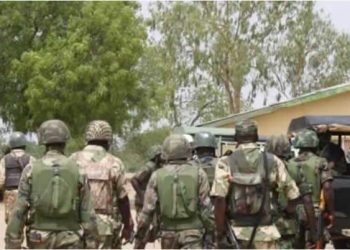Amnesty International (AI) is a human rights organisation concerned with prisoners of conscience under any type of political regime. Beyond this, it also tries to call attention to perceived human rights violations, where they occur. Recently, in a report on the war on terror in the North East region of Nigeria, it indicted some Nigerian military officers of human rights violations and recommended to the International Criminal Court (ICC) at The Hague, that they be tried for crimes against humanity. When the Boko Haram insurgency in that part of the country reared its ugly head, the Nigerian military was slow in responding to it, because it was a peculiar situation by virtue of the fact that the insurgents were Nigerians operating in an area with a heavy Nigerian civilian population. Before now, the Nigerian military had won their spurs in international peacekeeping operations. For them, fighting terrorists at home required new tactics, which they needed time to acquire. Without making excuses for the military, they appeared to have been caught up in the dilemma of the devil’s alternative; whichever decisions they would take, somebody would die. But with pressure mounting from within and outside the country, especially after the kidnap of the Chibok girls, they may have taken measures that created the very scenario they had tried to avoid.
It is not unlikely that in the course of executing the war on insurgency, they may have violated some rules of engagement without meaning to do so. In the ensuing anxiety to achieve results, some overzealous operatives who felt challenged by the impudence of the insurgents may have exceeded the limits of what is acceptable in a war situation. It, therefore, entails that there may have been mistakes that led to decisions which ultimately and unfortunately became counterproductive, with unintended consequences. That is to be expected, after all, war is not a tea party. These also, in the opinion of AI, are war crimes. Such situations may also exist elsewhere as the international war on terror progresses. Iraq, Syria, Libya, Chechnya, Ukraine, Palestine, Afghanistan, Pakistan and even Guantanamo Bay can also provide scenarios that require the intervention of the ICC, if AI could be spirited enough to make cases similar to what it is making against Nigeria.
We are not suggesting that proven cases of misconduct in war situations as we have in North East Nigeria should not be sanctioned. But at the risk of being misunderstood, our argument is and will remain that a national army embarrassed by the public outrage over its tardiness in a matter that required decisiveness, but in which it was constrained by the peculiar composition of the enemy may have been pushed to extremes. This may not be excusable, but we urge observers of what is going on in North East Nigeria to put in perspective the outcome of their investigations. To this extent, therefore, we are persuaded to posit that the AI report is untenable.
















































